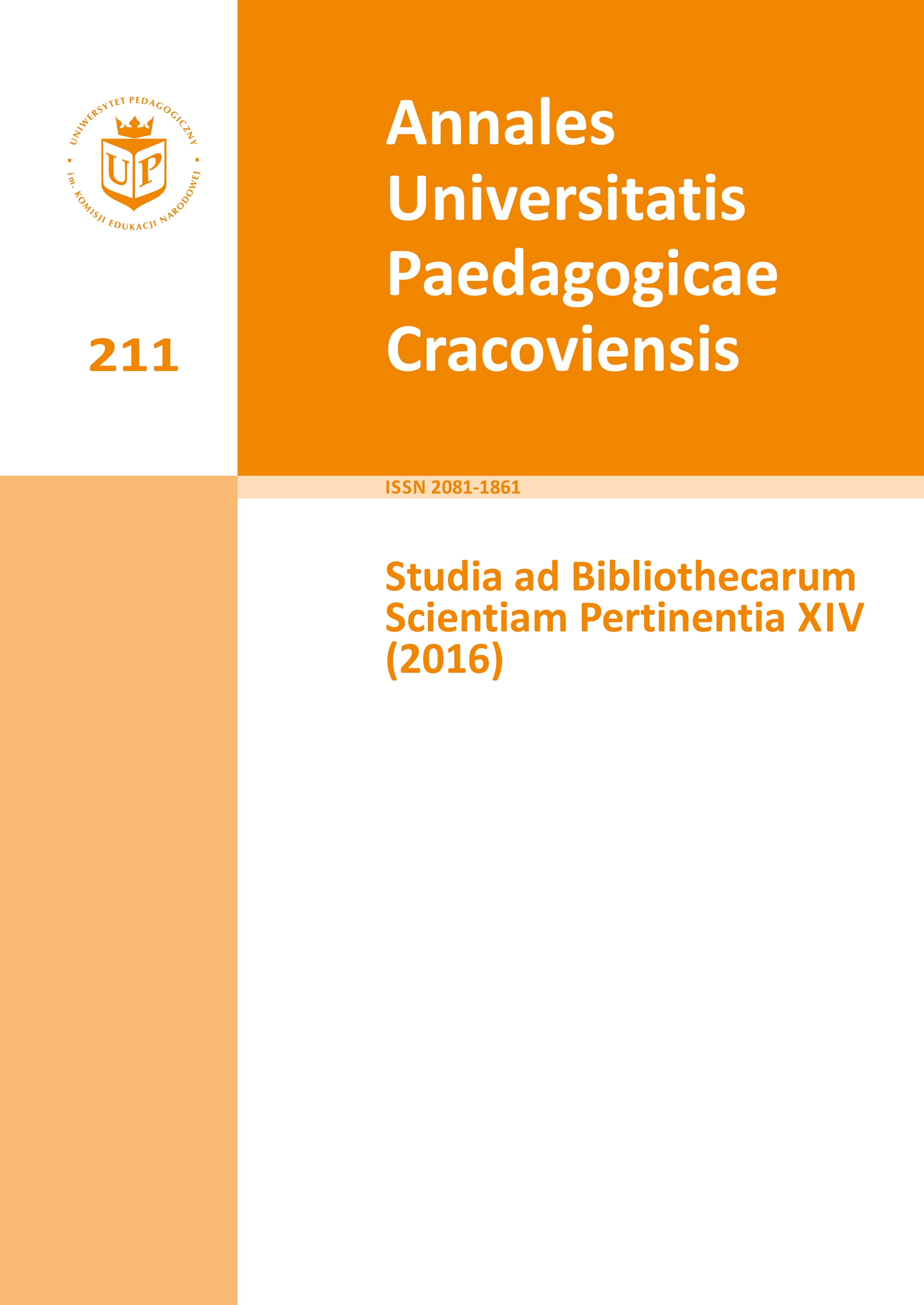The role of national legends in the process of shaping the identity of children and teenagers
DOI:
https://doi.org/10.24917/20811861.14.24Keywords:
national legends, books for children, neolegends, urban legendsAbstract
The article contains the results of research on the impact of traditional national legends on social and local identity development of children and teenagers. Thanks to legends, first passed down in oral form, then written, past can be witnessed in the present, and is the cultural heritage of the nation, region, and the city. Legends, in spite of their fairy-like illusion, provide children with answers related to the history of their country, its rulers, national heroes, and strengthen the sense of security, as well as comprise the cultural heritage of a nation. Traditional Polish legends were the subject of numerous changes over the course of years, and on their basis neolegends were created, including urban legends. Encouraging children to read legends and create their own neolegends in forms of narrative and artistic expressions, impels them to carefully observe their region, supports the development of imagination and activates creative processes. Carefully chosen legends, in accordance with a child’s age, not only hold educational values, but also educate by promoting noble values
References
Baldick C., Legend, w: The Concise Oxford Dictionary of Literary Terms, Londyn, Nowy Jork 2001, p. 138.
Baśnie i legendy o Płocku. Gwiazdy w Wiśle, Płock 2008.
Bruner J. F., Making stores. Law, Literature, Live, Massachusetts 2003.
Curtius E. R., Literatura europejska i łacińskie średniowiecze, Kraków 1997.
Delehaye H., Les légendes hagiographiques, Bruksela 1905.
Estés C. P., Biegnąca z wilkami. Archetyp dzikiej kobiety w mitach i legendach, translated by Agnieszka Cioch, Warszawa 2010.
Firlet E. M., Smocza Jama na Wawelu. Historia, legenda, smoki, Universitas, Kraków 1996.
Goodenough W., Cultural anthropology and linguistics, in: Language in culture and society. Dell Hymes, Nowy Jork, Londyn 1964.
Heyduk B., Legendy i opowieści o Krakowie, Kraków 1994.
Holmberg I., The Creation of the Ancient Greek Epic Cycle, „Oral Tradition”, 1998, nr XIII (2), pp. 456–478.
Jaworski S., Legenda, w: J. Majda (red.), Okresy literackie, Warszawa 1985, p. 366.
Kapełuś H., Legenda, w: Literatura Polska. Przewodnik encyklopedyczny, vol. I, Warszawa 1984, pp. 551–552.
Kroeger R. C. (1986), Legend, in: G. W. Bromiley (ed.), International Standard Bible Encyclopedia, Grand Rapids (Michigan) 1986, pp. 100-101.
Legendy i baśnie polskie, selected by A. Sójka; il. A. Fonfara, Poznań 2006.
Legendy krakowskie, retold by A. Majorczyk; translated by R. Gill, Kraków 2012.
Molicka M., Biblioterapia i bajkoterapia, Wrocław 2011.
Mortkowiczówna H. Podanie o Wandzie. Dzieje wątku literackiego, Warszawa 1927.
Piquemal M., Bajki filozoficzne, Warszawa 2004.
Skibiński E., Przemiany władzy. Narracyjna koncepcja Anonima tzw. Galla i jej podstawy, Poznań 2009.
Stadtműller E., Wiano Świętej Kingi, w: Królowie i święci, Kraków 2001, p. 2.
Sztompka P., Socjologia. Analiza społeczeństwa, Kraków 2012.
Tymieniecki K., Polska legenda średniowieczna, „Przeszłość”, 1935, nr VII (4), pp. 49–57.
Wilkoń A., Średniowiecze, in: J. Majda (ed.), Okresy literackie, Warszawa 1985, pp. 17-45.
Wipszycka E., Kościół w świecie późnego antyku, Warszawa 1994.
Wolska Bajka, Warszawa 2012.
Downloads
Published
How to Cite
Issue
Section
License
Copyright (c) 2017 AUPC Studia ad Bibliothecarum Scientiam Pertinentia

This work is licensed under a Creative Commons Attribution 4.0 International License.

